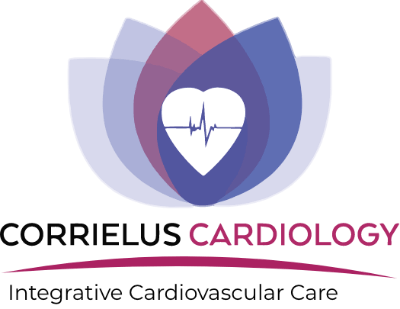Corrielus Cardiology offers an expansive menu of cardiac testing services, including non-invasive stress tests. All our testing is carried out using state-of-the-art technology and equipment.
By carefully evaluating how your heart responds to exercise, we can gain important information about the health of your heart and, in many cases, help you prevent severe heart disease.
Dr. Corrielus is an experienced cardiologist who values an integrative approach to your cardiovascular care. Our stress test options help determine how much stress your heart can manage before showing symptoms of arrhythmia or ischemia (poor blood flow to the heart).
We offer a variety of stress tests at Corrielus Cardiology.
During an exercise stress test, you will be asked to perform light exercises at varying difficulty levels for a set period. This may include walking on a treadmill or pedaling on a stationary bike.
Dr. Corrielus, or a cardiac technician, will evaluate and monitor several elements of your heart health throughout the procedure, including your heart rate, breathing, blood pressure, electrocardiogram (EKG), and level of fatigue.
The harder your body works, the more oxygenated blood it requires. An exercise stress test can tell us if your heart is responding properly to the demands of physical exertion or if the blood supply is impaired due to narrowed arteries.
At Corrielus Cardiology, we may recommend an exercise stress test in the following situations:
- To diagnose coronary artery disease
- To diagnose a cause of heart-related symptoms such as chest pain, shortness of breath, or lightheadedness
- To determine a safe or appropriate level of exercise
- To confirm the effectiveness of a current treatment plan for coronary heart disease
- To predict heart attack risk
Exercise stress echocardiograms are an invaluable diagnostic tool to assess your heart health and overall wellness. The results of the test may help confirm or rule out heart disease. If you have coronary artery disease, an echo stress test can help us determine if your current treatment plan is effective.
An echo stress test uses ultrasound technology and EKG monitoring to capture a patient’s heart function before, during, and after exercise or “stress.” The ultrasound images and EKG readings taken throughout the procedure allow Dr. Corrielus to view how your heart responds to stress.
Healthy arteries dilate during exercise and allow more blood flow. However, in narrowed or diseased coronary arteries, the blood flow is reduced and certain portions of the heart “starve” during exercise.
This can produce symptoms such as chest pain or shortness of breath for the patient, and the EKG and echocardiogram will show these abnormalities during the procedure.
If you are unable to perform exercise or walk on a treadmill during an echo stress test, medication can be given to speed up the heart rate or induce “stress” safely.
A myocardial perfusion test, or nuclear stress test, is used to examine the functioning of the heart, measure blood flow to the heart, and detect heart blockages.
We use myocardial perfusion testing to diagnose and monitor several cardiac conditions, including:
Not all patients experience outward symptoms when they have a heart blockage. Therefore, a nuclear stress test can be a life-saving procedure performed comfortably in a single clinical visit.
A nuclear stress test is an effective diagnostic testing tool that can evaluate blood flow to the heart and determine if there are any areas of blockage. During the test, a small dose of radioactive material (isotope) is administered through an IV.
Computer images capture how much of this radioactive material is absorbed by different areas of the heart. A “stress” component of the test can also be added during this procedure, typically done by having the patient walk on a treadmill or perform light exercise.
The test allows Dr. Corrielus to evaluate the amount of blood flow to the heart at rest and during activity. By assessing the amount of highlighted radioactivity “taken up” by the heart muscle, we can accurately confirm or eliminate the presence of a blockage in the heart.
Our cardiac testing methods are safe and painless. During a nuclear stress test, the amount of radiation exposure is equivalent to spending a couple of hours in the sun or undergoing a single CT scan. The radiation dissipates in the body within hours after it is administered.



